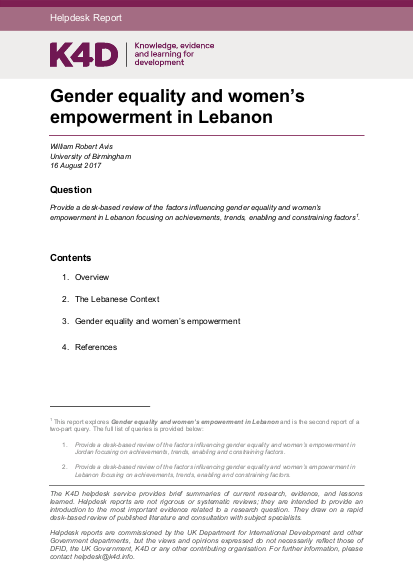Help Desk Review

This rapid help desk review provides an overview of the academic, policy and practitioner literature that examines gender equality and women’s empowerment in Lebanon. It is broadly accepted that despite many advantages and acquired rights, Lebanese women continue to face discrimination at numerous levels, keeping gender equality in Lebanon an elusive objective (USAID, 2012; World Bank, 2015). The weakness of the State is felt in the areas of civil affairs and personal status (especially in their relevance to women’s civic rights, family matters and gender relations). Such affairs have been formally relegated to the religious authorities as part of a confessional system rooted in an acknowledgement of the representational rights of registered sects and their respective power over their subjects (USAID, 2012). The Institute for Women’s Studies in the Arab World (2016) assert that by keeping family matters within the jurisdictions of religious courts, the Constitution detaches itself from its role as a guarantor of equal rights and creates a buffer between the citizen and the State. Salmeh (2013) asserts that, inspired by religious discourse, this legal structure necessarily places women as second-class citizens, treating them as minors in decisions related to governing their own lives.